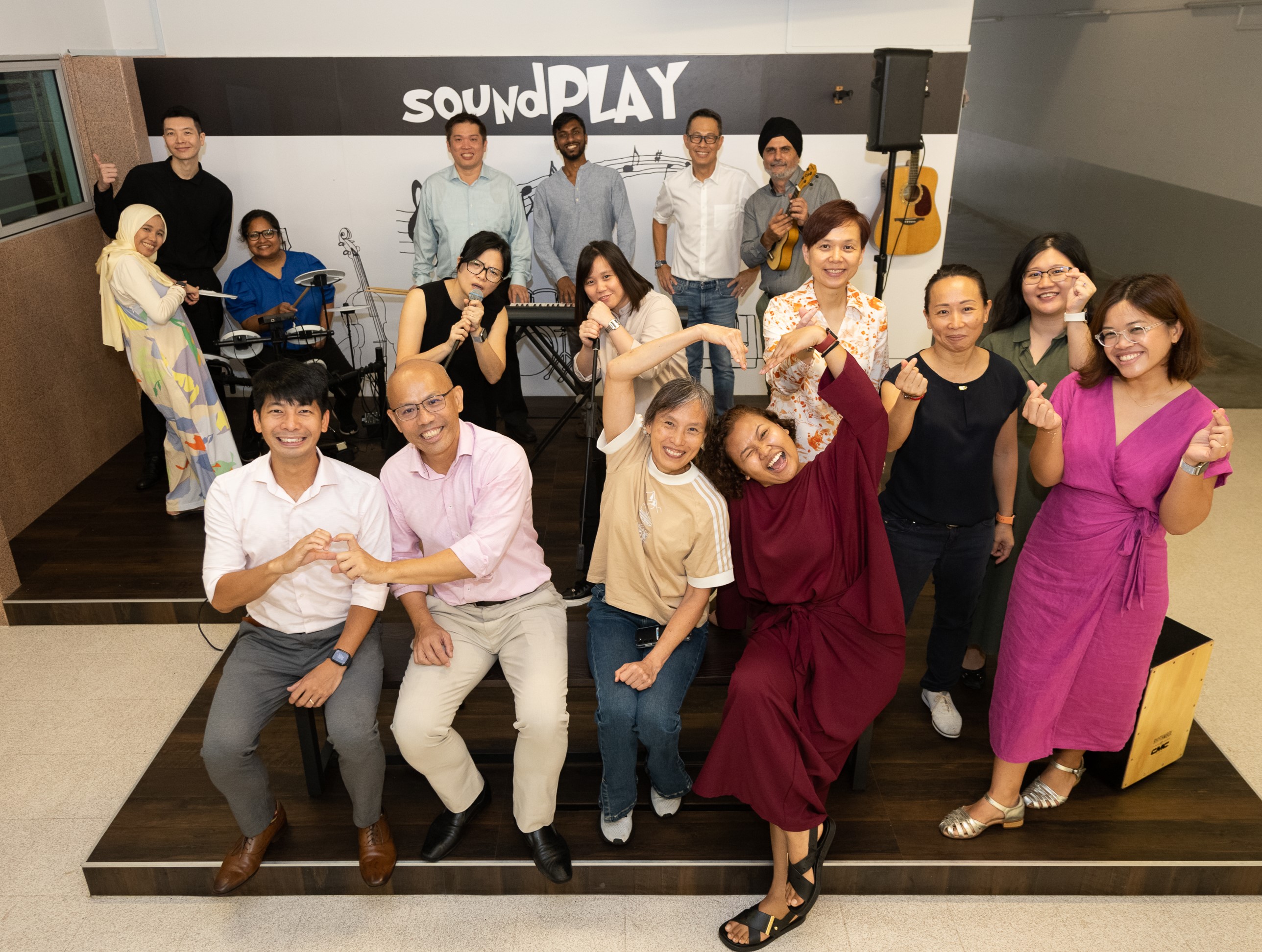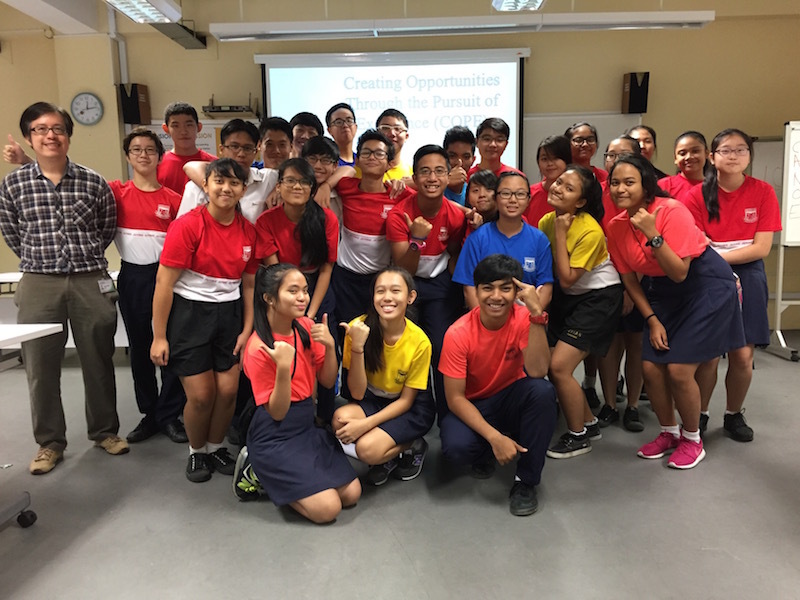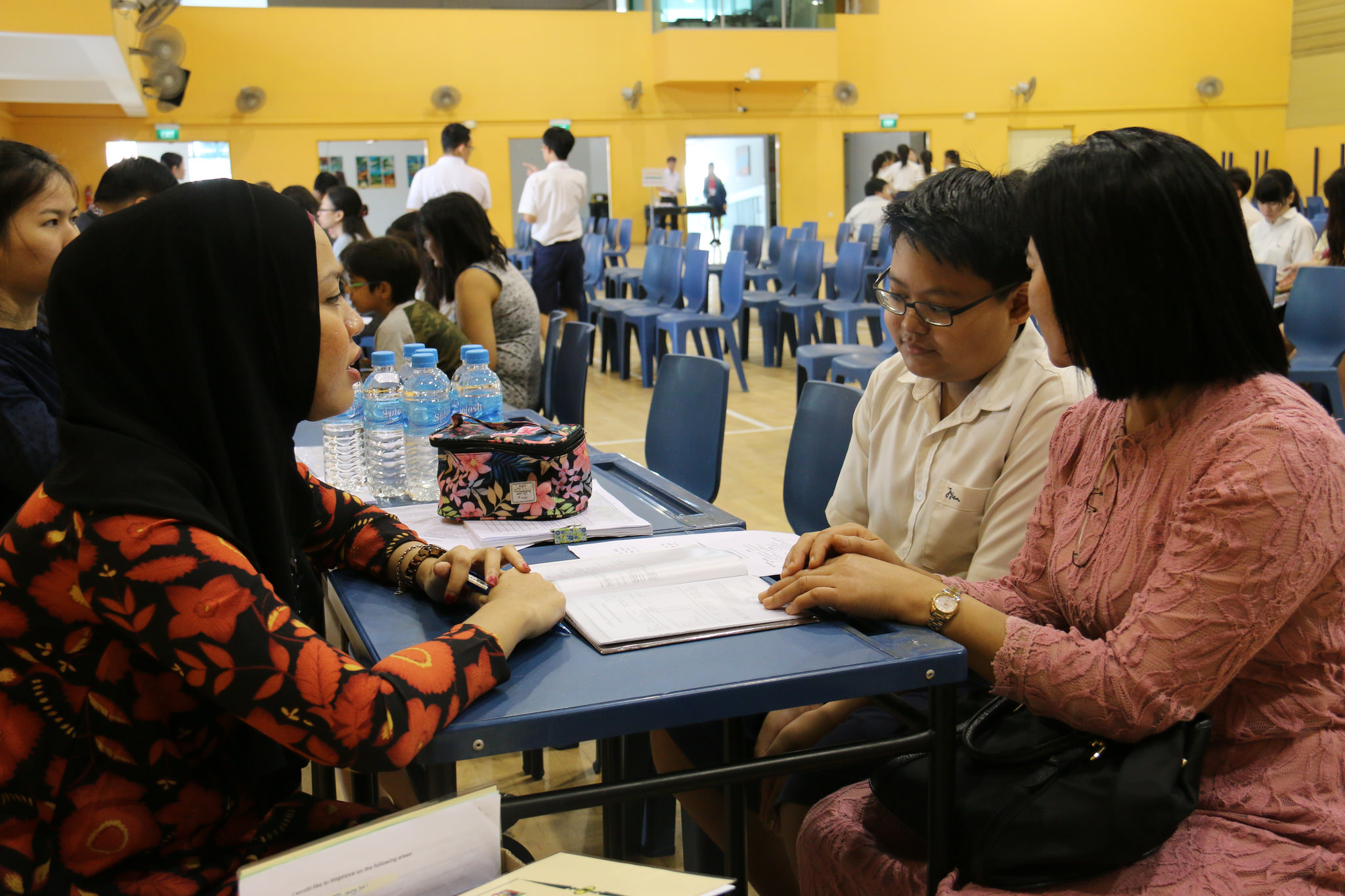Student Development Team

Organisation Chart
|
Committee Members |
|
|---|---|
|
Ms Senthil Silvarajoo |
HOD (CCE) |
|
Mr Wang Woon Keat |
Asst. Year Head (Upper Sec) |
|
Mdm Nur Raihanah Binte Rahmat |
School Counsellor |
|
Mr Terrance Woo |
Student Welfare Officer |
|
Ms Huang Wei Wei |
SEN Officer |
|
Mr Adrian Nyoe |
Committee Member |
|
Ms Shazana |
School Counsellor |
|
Ms Zhou Phyllis |
Student Welfare Officer |
|
Ms Chang Melody |
SEN Officer |
Information for Character Education Curriculum
The Character Education (CE) Formal Curriculum that comprises the CCE Lessons, School-based CCE and CCE Guidance Modules (Sexuality Education (SE), Cyber wellness (CW), Education and Career Guidance), is revised and designed based on the 6 CCE domains – self, family, school, community, nation and world, CCE Learning Outcomes, social trends and student developmental needs surfaced by the school’s Character Excellence Committee. The CE curriculum with a specific learning intent for each level has the characteristics of sequence where learning is cumulative and continuous, continuity where there is progression of values, attitudes, knowledge and skills at increased depth and complexity over the length of curriculum and transferability where students are able to put their learning into actions for internationalisation of values and skills.
The learning intents for the 4/5 levels are as follows:
Secondary One – Self-Mastery
Secondary Two – Relationship Mastery
Secondary Three – Leadership Skills
Secondary Four and Five – Pursuing Excellence
The learning intent of Self-Mastery is chosen for the Secondary One as they need to be aware of their identity – their strengths and weaknesses, to face the transition from Primary Six to Secondary One, being in new environment and handling new demands and challenges for adolescents. The Secondary Two, having settled in secondary school for a year, will need the skills to engage and relate to others, which include their peers, teachers and parents, and through it, they will learn more of themselves and the value of empathy. The Secondary Three who will take up leadership positions in their respective CCAs will need the leadership skills to lead and inspire their peers and juniors. Lastly, the Secondary Four and Five will stay focused in pursuing excellence in both aspects of academic and character development, which will definitely translate into excellent results in their national examinations.
The learning intents are achieved through the teaching of school R2IGHT values – Respect, Responsibility, Integrity, Graciousness, Humility and Teamwork, CE knowledge, skills and competencies in a consolidated way via different school programmes – both academic and non-academic. The CE Committee, which is formed by the Heads of Department and Subject Heads of all co-curriculum (PCCG/CCE, PE/CCA/Outdoor Education, Aesthetics, Student Development, National Education-Values-in-Action (NE-VIA), Normal Technical), Senior Teacher of Student Development, Year Heads, House Masters and the Prefect Master, works collaboratively and integrate the CE programmes, ensuring that there is no duplication of CE lessons. All CE lessons are guided by the structure of CCE 3 Big Ideas of Identity (who they are), Relationship (how they relate to self and others) and Choices (the ability to make good choices).
Assembly Programme
The Assembly Programme on alternate weeks is another CCE school-based programme,. It is planned and organised by the CE Committee with the aim to deliberate the school R2IGHT values and serve as platforms for students’ experience in the school’s Applied Learning Programme (ALP) and Learning for Life Programme (LLP).
Financial Assistance Scheme
Support for Students who need Financial Assistance
The goal of the FAS Committee is to identify students with special financial
circumstances that may confine their holistic development and growth in
JYSS. Throughout the year, the FAS Committee works together with the staff
to identify and nominate students to receive suitable scholarships and
bursaries generously given by various organisations.
Reading Books Presentation
Selected students also received a set of English reading books to assist
them in their learning of the English Language. Together with teachers
from the English Language department, suitable reading books were selected
for students according to their language abilities and interests. In addition,
all students received the motivational book, ‘The Joys and Pains of Growing
Up… 17 Principles Every Youth Must Know!’ by Mr Peter Lau, a successful
ex-JYian who was the world’s youngest Neuro-Semantics® Trainer in 2007
and motivational speaker.
CDAC and Mendaki Tuition Programme
In alignment with the school’s focus on academic excellence, the school
sought the help of teacher-volunteers from the CDAC and Mendaki tuition
programme for our JYians in their learning of the core subjects. A total
of 95 students across levels and ethnic groups benefitted from these weekly
tuition sessions, allowing them additional assistance in their understanding
of the concepts in their English, Mathematics and Science subjects. This
was a significant step for our students who faced financial constraints
but yet required additional assistance in their studies.
Creating Opportunities for the Pursuit of Excellence Series (C.O.P.E.s)
Objectives of Event
The workshops are planned to assist the upper secondary students to:
1. achieve the school ‘s Character and Citizenship Education (CCE) level learning outcomes that is ‘ students will be pursuing excellence for their national examinations, post-secondary education and future endeavours in the globalised world’.
2. attain the CCE skills of reflective thinking, perspective taking and responsible decision making.
3. practice the values of resilience and responsibility.
The C.O.P.E. series of workshop is customized for the Upper Secondary Students in 2015 Term 1. The students of the graduating classes namely the Secondary Four Express, Secondary Four Normal (Academic), Secondary Four Normal (Technical) and the Secondary Five Normal (Academic), will attend a total of 5 sessions workshop. The Secondary Three students will be attending the C.O.P.E series of workshop in 2015 Terms 2 and 4. In these workshops, the students learnt that it is possible to turn our own imperfect circumstances, insecurities and weaknesses into a source of strength and to overcome adversity. They learnt that being successful is about self-actualization, being able to achieve personal growth and live a fulfilling and purposeful life in accordance with our personal values and aspirations. The students explore, clarify and strengthen their personal motivations for wanting to be successful. The students were also taught good learning skills, techniques and habits that will enhance their long-term learning effectiveness and academic performance.

Participants of a C.O.P.E Workshop with Speaker Mr Hong Chee Joo
Positive School Climate (PSC) Awards
Objective
To give recognition to students for exhibiting the R2IGHT values.
The Juying Secondary Positive School Climate (PSC) awards are a set of awards that give recognition to our students for exhibiting the school R2IGHT values. A total of 23 students, who represented their respective classes, were presented the Most Proactive Student awards this year in Term Two. They exemplified the ideal student in Juying Secondary through their actions within and out of the classroom, such as following up with their classmates who were absent from class. To recognise the collective efforts of classes that contributed to the overall positive school culture, the Most Proactive Class awards were also given to each level. It has truly been an encouraging year to see our JYians living out the school values!
|
Most Gracious Class Award |
Best Learning Attitude Award |
|---|---|
|
Best Attendance & Punctuality Award |
Most Improved in Attendance & Punctuality Award |
|---|---|
Student-led Parent Teacher Conference
The Student-led Parent Teacher Conference takes on a different approach from the conventional biannual parent teacher conference. In a Student-led Parent Teacher Conference, students are empowered to take ownership of their learning. Prior to the conference, students set academic and character goals. They gather feedback from subject teachers on ways to improve academically.
Under the guidance of their form teachers, students prepare their presentation and share these goals and achievements with their parents. In this way, the ownership of learning is transferred to the students. As they share, they build confidence and take responsibility in their learning.

Ms Roslin & Ms Hong updating the parent on their child's progress

